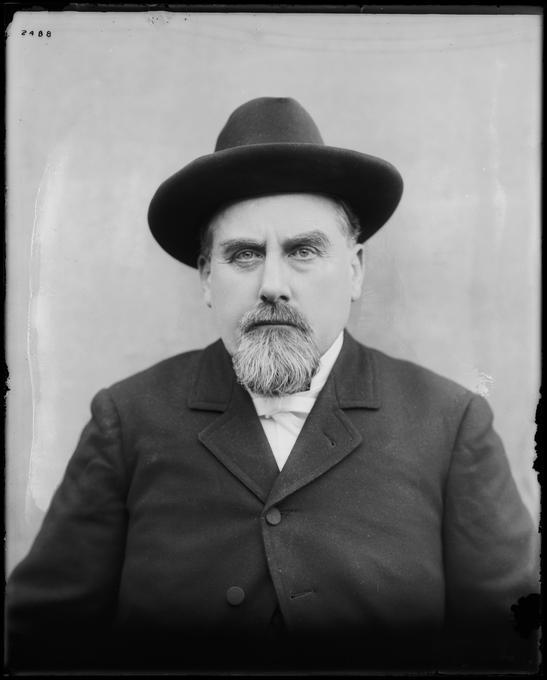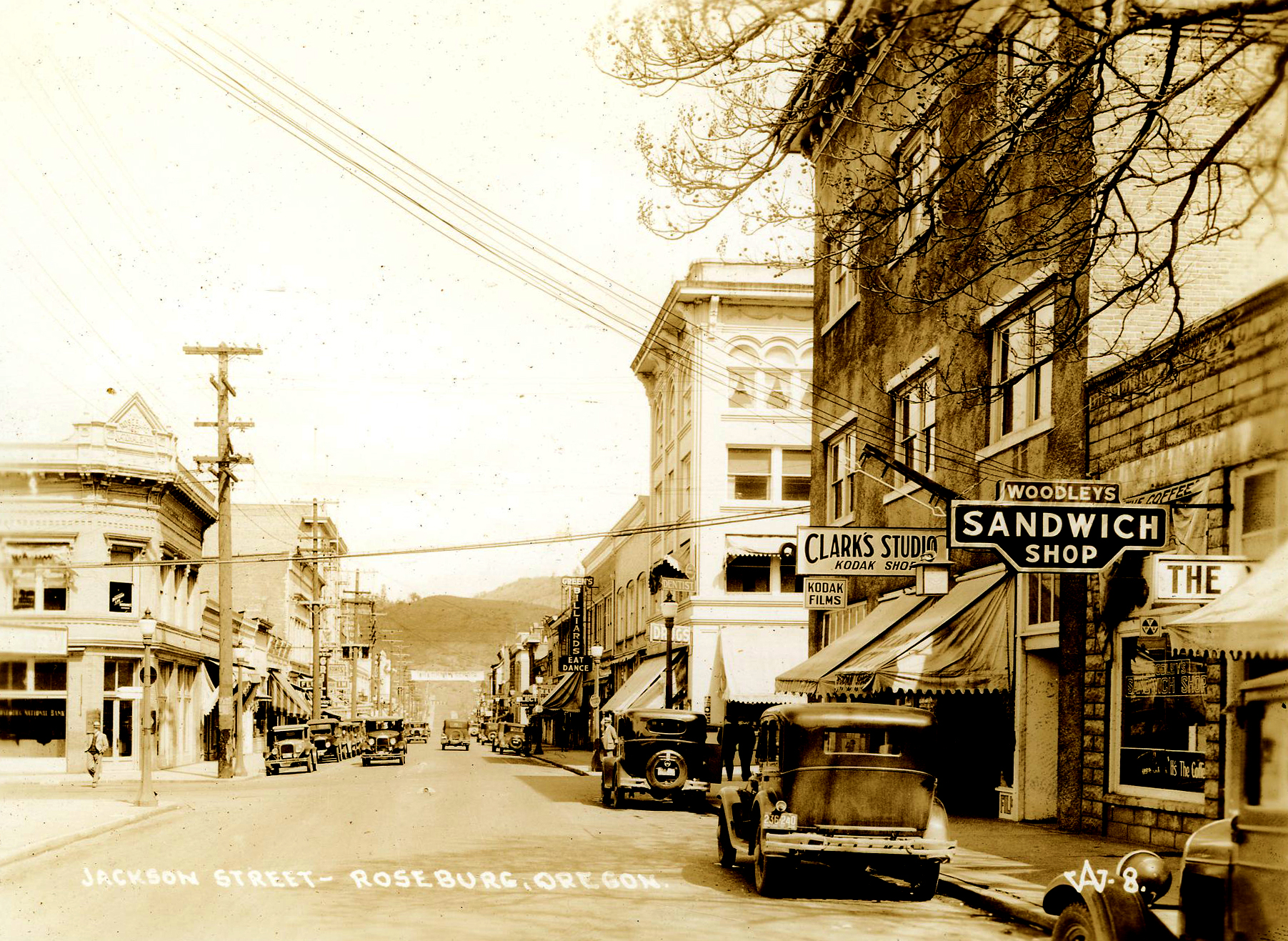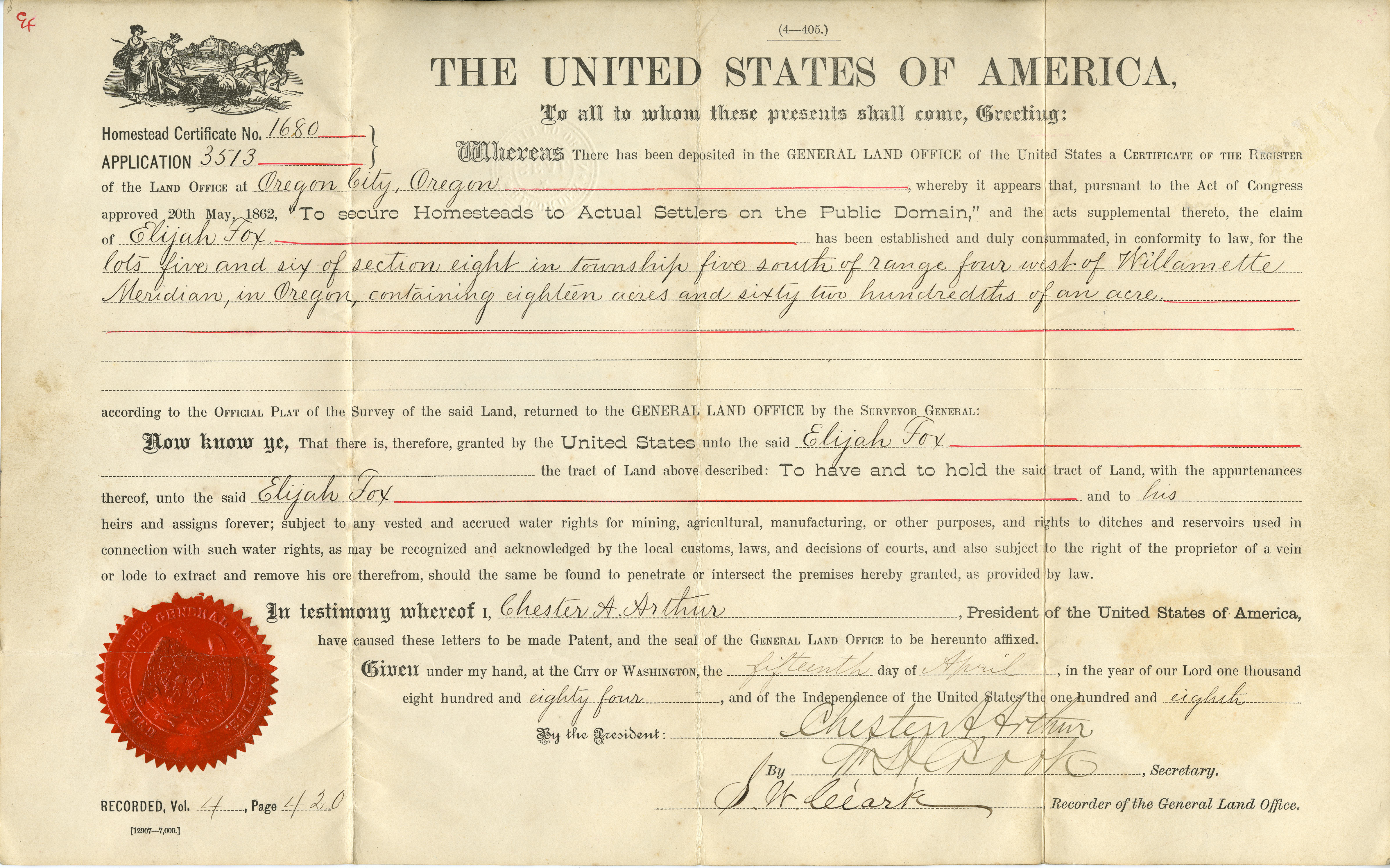Binger Hermann was a Roseburg attorney and politician who represented Oregon in the U.S. House of Representatives for sixteen years and served as commissioner of the General Land Office (GLO) under presidents William McKinley and Theodore Roosevelt. His public career ended in scandal with his indictment in the Oregon Land Frauds, although in time he was acquitted of all charges.
Born in Maryland on February 19, 1843, Hermann migrated as a teenager with his family to Oregon's Coquille River Valley, where his father, Dr. Henry Hermann, established a community of pioneer settlers known as the Baltimore colony. Binger Hermann spent several years as a public schoolteacher before studying law in the office of Stephen Chadwick. In 1865, he accepted a commission as first lieutenant in the U.S. Army, but the Civil War ended before he could recruit a full company of volunteers.
Hermann secured admission to the Oregon Bar in 1866 and began his political ascent with election to the state legislature the same year. Over the next two decades, he was state senator, tax collector, and judge advocate in the Oregon militia. In 1884, he became Oregon's sole representative in Congress. After serving six terms in the House, a determined opposition defeated him at the 1896 Oregon Republican convention and nominated Thomas Tongue to replace him. A year later, President McKinley appointed Hermann commissioner of the GLO.
In 1903, Hermann resigned as commissioner at the request of Secretary of the Interior Ethan A. Hitchcock following revelations of fraud in the GLO. Subsequent investigations revealed widespread abuse of the federal homestead laws, with land speculators filing false homestead claims and bribing GLO officials to approve them. Before vacating his office, Hermann destroyed thirty-five letterbooks, which he claimed were personal. The Oregonian calculated that if Hermann’s claims were true, then he had written ten personal letters for every day of his term in office.
Despite the scandal, Hermann won re-election to his former congressional seat four months later. Critics attributed his victory to a photograph published in the Oregonian of Hermann and an unwitting Theodore Roosevelt during the popular president's recent tour of Portland.
In 1905, a federal grand jury in Portland filed indictments against Hermann on charges ranging from destruction of evidence to conspiracy to commit fraud. He was one of several prominent politicians under investigation, and the subsequent trials scandalized the state for the remainder of the decade. While other members of the Oregon congressional delegation were found guilty, including Senator John H. Mitchell, two separate juries failed to convict Hermann.
In his unpublished memoirs, Hermann portrayed himself as the victim of Secretary Hitchcock's personal animosity and compared his trial to the Terror of Revolutionary France. The chief prosecutor, Francis Heney, claimed that Hermann was as crooked as Mitchell and that he had won acquittal by placing a friend on the jury. Writing in 1920, forestry historian John Ise concluded that Hermann was neither victim nor villain, but a typical politician who acted according to his conscience when possible and his politics when necessary. Hermann was, according to Governor Theodore Geer, "one of the smoothest politicians Oregon ever produced."
Binger Hermann died on April 15, 1926.
-
![]()
Binger Hermann, c.1900.
Courtesy University of Oregon Libraries -
![Mitchell land fraud trial cartoon, Oregonian, 1905, by Harry Murphy]()
Mitchell trial, editorial cartoon, 1905.
Mitchell land fraud trial cartoon, Oregonian, 1905, by Harry Murphy Courtesy Oreg. Hist. Soc. Research Library
Related Entries
-
![Francis J. Heney (1859-1937)]()
Francis J. Heney (1859-1937)
Francis Joseph Heney was a California lawyer, judge, and politician dur…
-
![John Hipple Mitchell (1835-1905)]()
John Hipple Mitchell (1835-1905)
John Hipple Mitchell was a Portland lawyer and politician whose long ca…
-
![Oregon Land Fraud Trials (1904-1910)]()
Oregon Land Fraud Trials (1904-1910)
During the summer of 1905, while visitors enjoyed the amusements of the…
-
![Roseburg]()
Roseburg
Roseburg, the county seat of Douglas County, is located in the Hundred …
-
![U.S. General Land Office in Oregon, ca. 1850-1946]()
U.S. General Land Office in Oregon, ca. 1850-1946
With the acquisition of the Oregon Country in 1846, the United States w…
Related Historical Records
Map This on the Oregon History WayFinder
The Oregon History Wayfinder is an interactive map that identifies significant places, people, and events in Oregon history.
Further Reading
Dodge, Orvil. Pioneer History of Coos and Curry Counties, Or. Salem: Capital Printing Company, 1898.
Ise, John. The United States Forest Policy. New Haven: Yale University Press, 1920.
Messing, John. "Public Lands, Politics, and Progressives: The Oregon Land Fraud Trials, 1903-1910." Pacific Historical Review 35 (1966), 35-66.
Puter, Stephen A. D. and Horace Stevens. Looters of the Public Domain. Portland: The Portland Printing House, 1908.





